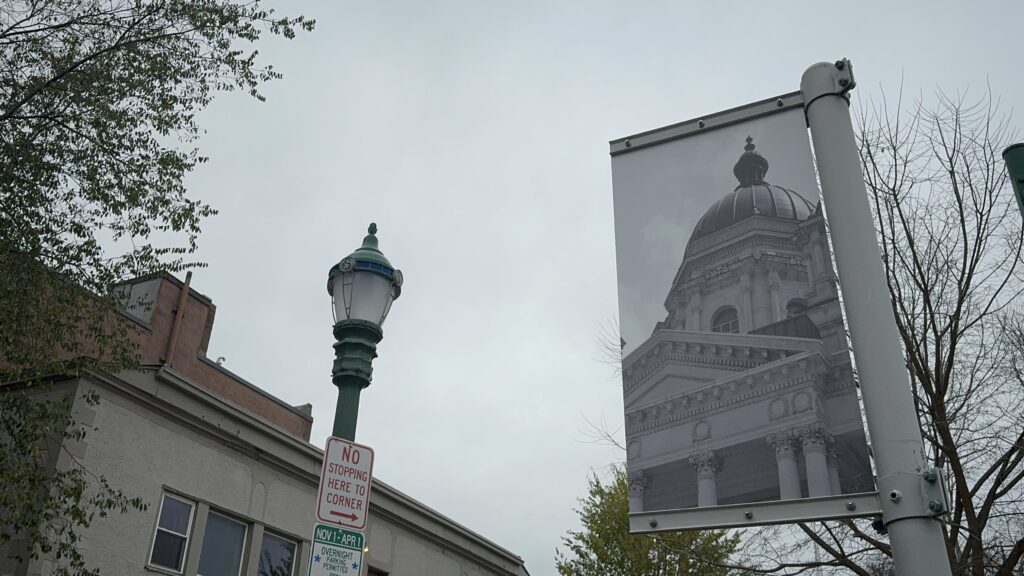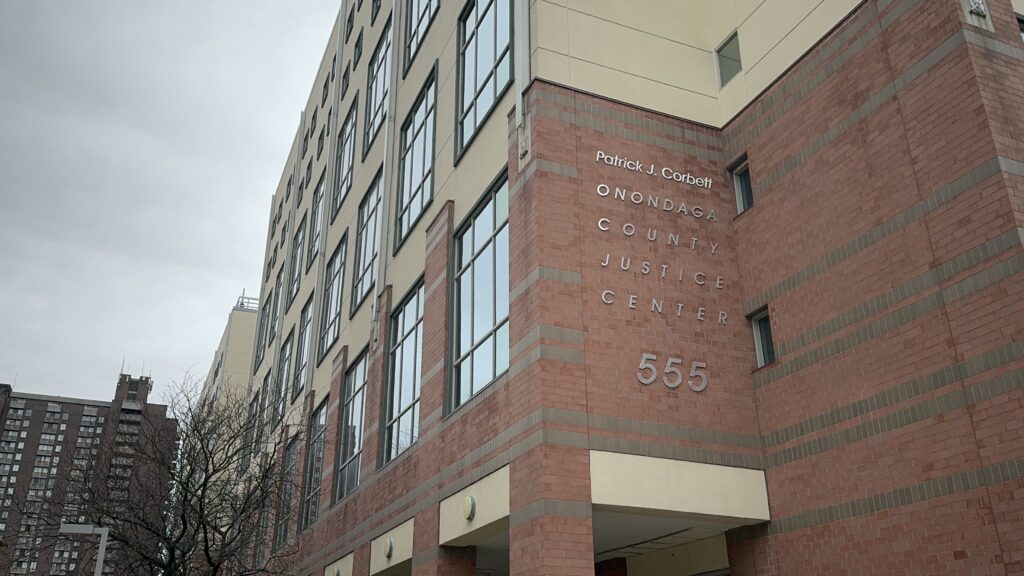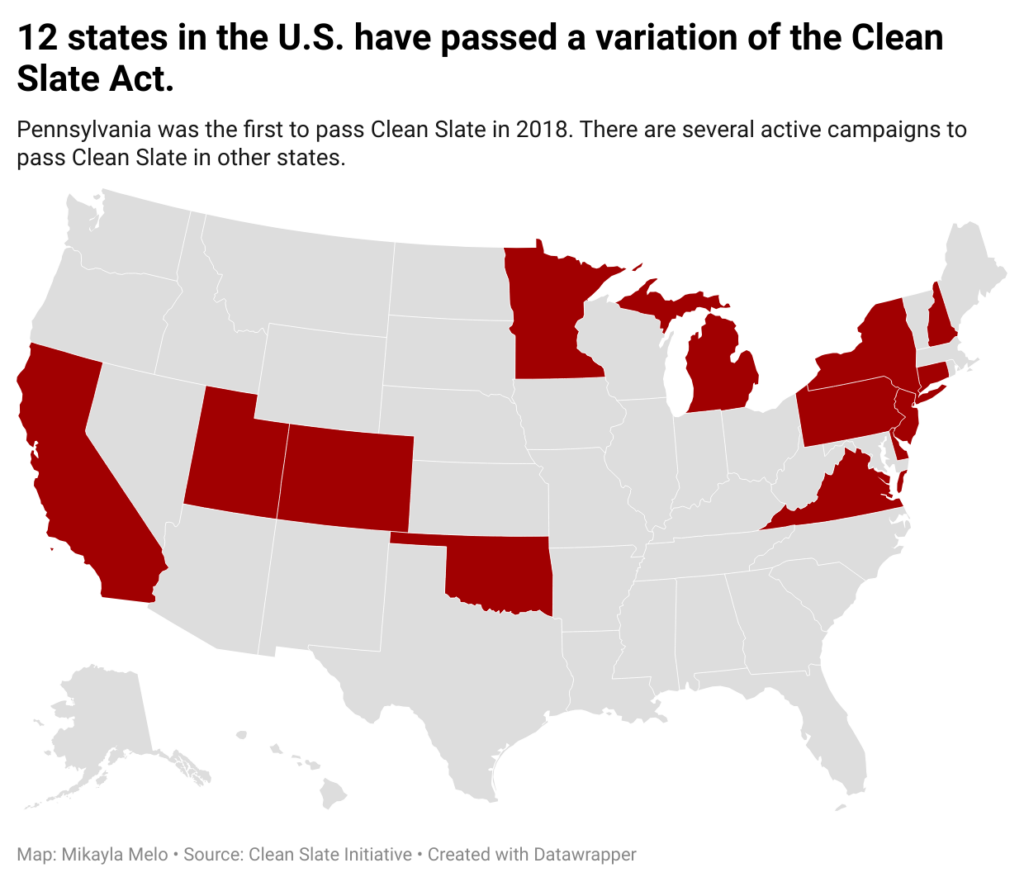SYRACUSE, N.Y. (NCC News) — The new law’s automatic sealing of criminal records paves the way for 2.1 million New Yorkers to overcome barriers to employment, housing and education.
VIDEO TRANSCRIPT: New York’s Clean Slate Act offers hope for formerly incarcerated individuals
Jason Rodriquez: First off, I’m formerly incarcerated, so I came home in about 2021 after doing about, 24 and a half years, I went in as a teenager. When people are coming home, you’re already branded with having a conviction record, right? And it’s sort of like that approach where you’re like a leper in society and nobody really wants to, like, hear what you have to do or give you the chance.
This actually opens the door to, like, show, like, hey, I’ve been contributing in society. But not only that, I’ve been contributing in society, but here I am, I’m willing to work, I want to work, and now I can work. And so it’s kind of showing like, oh, now, yeah, I see, I see Jason. Jason has really done great things for his community.
He’s working up at the Center for Legal Action Center, and they’re doing wonderful things here. And he’s contributing to society. I would like to talk to Jason more about that. It kind of instills that confidence where like, I’m like, society’s not going to be further harmed by the injustices people committed before going in.
And you don’t have them becoming adults getting caught in the system where it’s a perpetual cycle of just conviction record. You can’t find employment, you can’t find work. And then you go back to what you think, you know, allowing them to be employed and to work and contribute to housing. They’re going to be examples for the youth, right, that are coming up to say like, Hey, I can do what he did or what she did or what they did. I can do that. I can be that change in my community.
Content warning: mentioning of suicide, abuse, violence
SYRACUSE, N.Y. (NCC News) — Jason Rodriquez was four months away from turning 18 when his life changed forever. Abused at home and isolated from community programs, Rodriquez turned to the streets. For years, he was bullied and repeatedly assaulted by another kid in the neighborhood.
“Because he didn’t like the way I looked and because I didn’t understand or know or have a male figure in my life to how to deal with that, I internalized it,” said Rodriquez.
Pushed to his breaking point, Rodriquez was contemplating suicide. After being once more accosted and threatened by his bully, Rodriquez shot and killed him. He served over 24 years for second-degree murder.
Since being released in 2021, he has worked hard to turn his life around. He now serves as a policy research associate at the Legal Action Center, a law and policy advocacy organization based in New York City.
Like him, Rodriquez believes that the majority of his peers are eager to contribute to society and uplift the communities they come from, but have not been given a fair opportunity to do so. With the recent implementation of the Clean Slate Act in New York, many employment barriers for formerly incarcerated people will be removed.

What is the Clean Slate Act?
The Clean Slate Act was signed into effect by Gov. Kathy Hochul on Nov. 16, allowing individuals to have their records automatically sealed three years after a misdemeanor conviction and eight years after a felony conviction. This new law represents the latest effort to reform the criminal justice system in New York, aiming to combat discrimination and open opportunities for formerly incarcerated people to reintegrate into society.
“It’s sort of that approach where you’re like a leper in society and nobody really wants to hear what you have to do or give you the chance. This actually opens the door to show I’ve been contributing in society… here I am, I’m willing to work. I want to work and now I can work,” said Rodriquez.
Eligibility requirements:
- Completed probation, parole or mandatory supervision
- No additional convictions, parole or probation violations during the waiting period
- No pending criminal charges
- Offenders who committed a sexual offense, a class A felony, or received a life sentence are not eligible

While the Clean Slate Act doesn’t expunge or destroy criminal records, it ensures that prior convictions will no longer appear on background checks for housing, education or most job applications.
According to Vittorio Nastasi, director of criminal justice policy at Reason Foundation, a think-tank focusing on public policy research and analysis, a key feature of the Clean Slate Act is that the law automates the sealing process. Several other states have a system for sealing or expunging records that require a petition process, which has a “take up rate” of less than 10%, according to Nastasi.
“Very few people who are eligible to have their records concealed actually go through the petition process. And that’s why automating the sealing or expungement process through Clean Slate legislation is something that people are excited about in New York,” said Nastasi.

Economic, social and community impacts
The Clean Slate Act, backed by labor unions, legislators and advocacy groups alike, strives to boost the economy in New York. The law removes barriers for an estimated 2.1 million adults in New York with a criminal conviction to return to employment, making up nearly 22% of the state’s workforce, according to the Brennan Center for Justice. Of those 2.1 million adults, 44% reside in upstate New York, making this an issue that impacts the entire state.
The law aims to help individuals who have already been contributing to society but have faced difficulty accessing jobs and housing. The Brennan Center also reports that felony convictions reduce annual earnings by about 20% and misdemeanors by about 15%, stating that employment discrimination due to criminal record costs New Yorkers around $12.6 billion every year.
The law also sets a precedent for combating racial injustice in the criminal system. Marginalized communities already face several barriers in the workplace, with time in prison disproportionately impacting the earnings of Black and Latino populations, according to an analysis by the Brennan Center.
“We still have milestones and stones to overturn. But this is a really encouraging thing, and it shows that if we’re truly a society of redemption, then we need to be removing these barriers one by one. Clean Slate is one of those barriers,” said Rodriquez.
